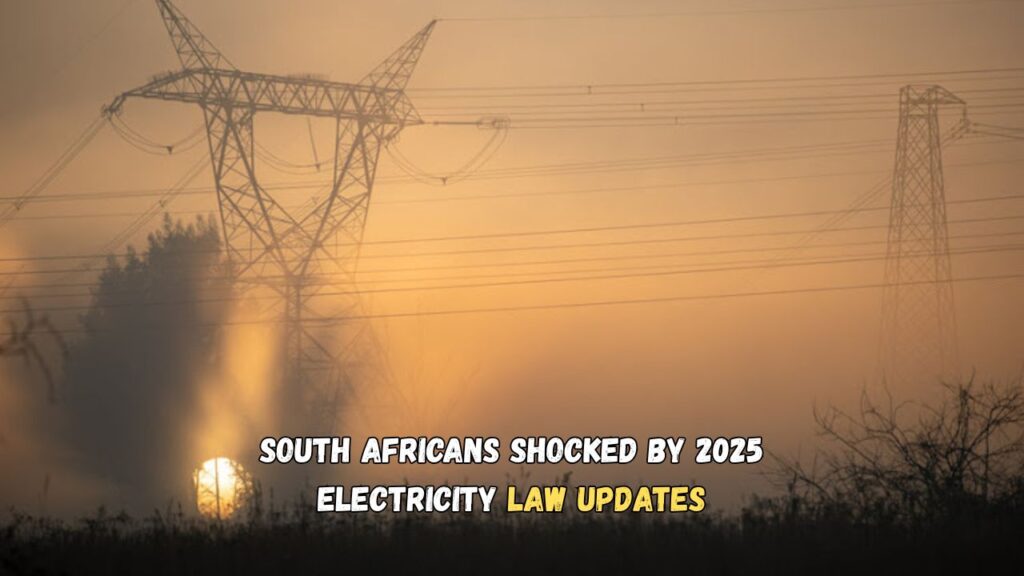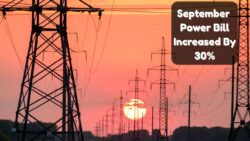2025 Electricity Law Changes in South Africa: The upcoming modifications to South Africa’s electricity laws in 2025 are poised to reshape the country’s energy landscape significantly. As South Africa grapples with ongoing energy challenges, including load shedding and rising electricity costs, these legislative updates aim to address longstanding issues and set the stage for a more sustainable future. By focusing on renewable energy sources and enhancing the regulatory framework, the government hopes to increase energy security and reduce dependency on traditional power generation methods. Understanding these changes is crucial for both consumers and industry stakeholders alike, as they will have far-reaching implications for energy production, distribution, and consumption in the nation.

Key Elements of the 2025 Electricity Law Reforms in South Africa
The 2025 electricity law reforms in South Africa are comprehensive, addressing various facets of the nation’s energy sector. One of the most significant elements is the increased focus on renewable energy. The government plans to incentivize investments in solar, wind, and other sustainable energy sources, aiming to reduce the country’s carbon footprint and reliance on coal-fired power plants. This shift is vital in meeting international climate commitments and ensuring a cleaner, greener energy supply for future generations. Additionally, regulatory changes are being introduced to streamline the approval processes for new energy projects. By reducing bureaucratic red tape, the government hopes to encourage more rapid development and deployment of innovative energy solutions. Furthermore, the reforms will enhance the role of independent power producers (IPPs) in the energy market. By creating a more competitive environment, these changes aim to lower electricity prices for consumers and improve service reliability. The introduction of smart grid technologies and improved infrastructure is also on the agenda, which will optimize energy distribution and efficiency across the country.
Impact of the 2025 Electricity Law Changes on South African Consumers
For South African consumers, the 2025 electricity law changes promise a host of benefits and challenges. On the positive side, increased competition among energy providers could lead to more competitive pricing, ultimately reducing the cost of electricity for households and businesses. Moreover, the emphasis on renewable energy sources is expected to lead to a more stable and reliable power supply, minimizing the frequency and severity of load shedding incidents. This shift will not only enhance the quality of life for everyday South Africans but also boost economic productivity by reducing disruptions to businesses. However, consumers may need to adapt to new pricing models as the market evolves. With the introduction of smart meters and dynamic pricing, there may be fluctuations in electricity tariffs based on demand and supply conditions. This could require consumers to be more mindful of their energy consumption patterns to manage costs effectively. Additionally, the transition towards a greener energy grid might involve initial investments in new appliances and systems compatible with renewable energy sources.
2025 Electricity Law and Its Implications for South African Businesses
The business landscape in South Africa is set for a transformation with the 2025 electricity law changes. Companies operating in energy-intensive industries, such as mining and manufacturing, are likely to experience the most significant effects. The push towards renewable energy and the integration of IPPs will open up opportunities for businesses to invest in their own energy solutions, potentially leading to cost savings and improved energy reliability. Furthermore, the anticipated regulatory changes could streamline the process for businesses to establish partnerships with energy providers or even develop their own renewable energy projects. By becoming more energy self-sufficient, companies can shield themselves from future electricity price volatility and supply disruptions. However, businesses must also prepare for potential challenges. Adapting to new technologies and regulatory frameworks may require significant upfront investments and strategic planning. Companies will need to stay informed about the evolving energy landscape and engage with policymakers to ensure their interests are represented in the ongoing reform process.
Future Prospects of South Africa’s Energy Sector Post-2025 Law Changes
Looking beyond 2025, the changes in South Africa’s electricity laws herald a new era for the country’s energy sector. The move towards a diversified energy mix, with a substantial share of renewables, positions South Africa as a leader in the regional energy transition. This transformation is expected to attract foreign investments, creating job opportunities and boosting economic growth. As the country adopts more advanced energy technologies, such as smart grids and energy storage solutions, it will be better equipped to meet both domestic and export energy demands sustainably. Moreover, the focus on innovation and sustainability aligns with global trends, ensuring that South Africa remains competitive in the international market. However, the success of these reforms will largely depend on effective implementation and continued stakeholder collaboration. The government, private sector, and civil society must work together to address potential barriers and ensure that the benefits of the new electricity laws are realized by all segments of society. As South Africa navigates this pivotal transition, the focus will remain on fostering a resilient, inclusive, and sustainable energy future for the nation.




